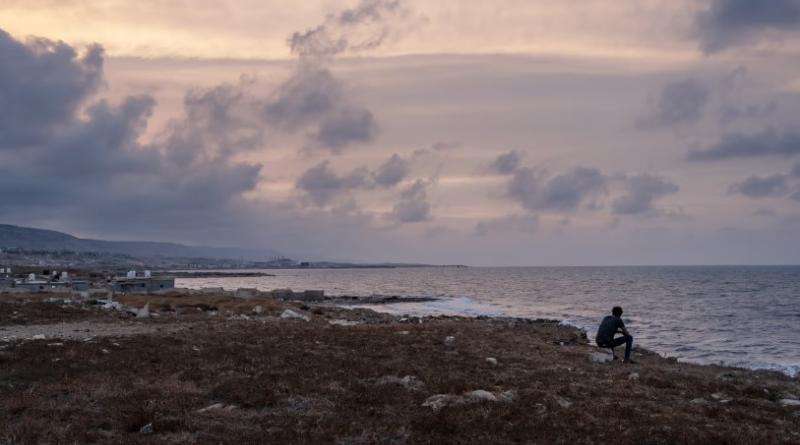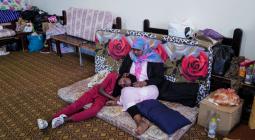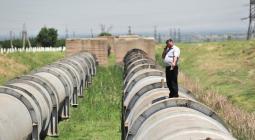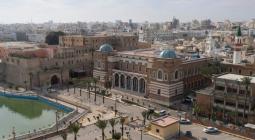Months after deadly floods in Libya, migrants’ families still await news of the missing

Aid agencies say as many as 20,000 undocumented people were in Derna when Storm Daniel hit. Now their relatives, fear they may never know their fate
“I have faith that my brother and his family survived this catastrophe,” says Sana’a, but her voice lacks conviction.
She has nothing to back her gut feeling. As the days go by with no word from them, Sana’a is consumed by fear that they were among the thousands killed by the storm, when the collapse of two ageing dams caused devastating floods in Derna.
“My husband and son went to Lu’ay’s home and there was nothing left of it. I’ve put their names on a list compiled by a committee in the Palestinian consulate in Benghazi dedicated to chasing those missing. Otherwise, I don’t know what else to do,” she says. Because Lu’ay worked as an independent construction worker and builder, there isn’t an employer she can ask for help.
Despite the many years of violence and political instability that have divided the country between two governments and pushed Libya deep into chaos, the oil-rich north-African nation has remained a popular destination for immigrants who either come for better living conditions, or in the hope of crossing the Mediterranean to reach Europe.
Weeks of relief efforts managed to salvage only a fraction of the bodies of those swept into the sea. Unicef places the number of people still missing at about 8,500, but the true death toll remains unclear. In the days after the disaster, many people were buried in mass graves without being identified by their families, who may never know what happened to their loved ones.
Nine days after the storm, a Unicef report said 406 migrants lost their lives, of whom 250 were Egyptian, 150 Sudanese and six Bangladeshi.
Lu’ay and his family have been officially added to the list of 65 Palestinians killed by the storm, say officials at the Palestinian consulate in Benghazi. “The Libyan government made a huge effort in search and rescue operations and provided healthcare assistance to those who needed it,” says Ibrahim Jumaa, member of the crisis committee at the Palestinian consulate in Derna. “But, as of now, no financial compensation was given to the 90 affected families.” He adds that the Libyan government has already started to distribute compensation averaging 50,000 Libyan dinars (£8,259) to its own citizens.
The situation gets even more complicated for immigrants, such as Ali Ashraf, whose presence in Libya was undocumented. The 25-year-old had been working as a blacksmith in Derna for a year, and his monthly bank transfers had been a lifeline for his family in Minya province in Egypt, one of the country’s most impoverished regions. And as the money stopped coming, so did any news from Ali.
“The Egyptian foreign ministry and the Egyptian Red Crescent were in contact with us to gather his details,” Samah, Ali’s 30-year-old sister, says. “We’ve also been circulating his photos on social media, in the hope that someone would come forward with any information.” But there has been nothing.
Saad al-Qataani, communications director of the Tobruk medical centre, says that Libya sent 145 bodies of victims back to Egypt in September. “The Libyan authorities also buried hundreds of bodies in Derna after collecting DNA samples from victims we believe to be Egyptian,” he says. “We are now working to identify them.”
According to statements by Egypt’s ministry of social solidarity, the government gave 25,000 Egyptian pounds (£652) to those who were injured by the floods, while the families of those who died were reportedly given 100,000 Egyptian pounds (£2,600). But Ashraf’s family have received nothing yet.
“Not that it’ll make up for our grave loss, but we have not received any support or compensation from the Egyptian or the Libyan governments. Not even his personal belongings,” Samah says. “It won’t be easy proving that he was in Derna when the storm struck.”
While Hamad al-Shalwi, a member of the crisis committee in Derna, says there were about 6,000 migrants in the city when Storm Daniel hit on 10 September – including 3,000 Egyptians, 1,500 Sudanese, 250 Palestinians and 500 Syrians – a 2023 report by the International Organization of Migration put the number at 21,460, predominantly from Egypt, Sudan, Chad and Syria.
According to the UK-based Syrian Observatory for Human Rights, at least 110 Syrians were confirmed dead a week after Storm Daniel, with about 100 unaccounted for. “There were also dozens of people from various African countries, many of whom entered the country illegally,” Shalwi says.
Mahmoud al-Kadeki, a political analyst and researcher at the University of Benghazi, says those who are undocumented fall through the cracks. “Being unregistered with the state means they lose their eligibility for any rights guaranteed by the legal framework,” he says.
Nasser Ayad (not his real name), an Egyptian undocumented immigrant in Libya, says he paid smugglers about 100,000 Egyptian pounds four years ago to get into the country. The 39-year-old father of two had been working in a small blacksmith shop in the city when the storm completely destroyed his workplace, leaving him without a job or pay.
“I was one of three Egyptians who worked in the shop, and our Libyan employer paid us generously,” says Ayad over the phone. “When the storm arrived, it left nothing of the workshop. The tools and materials – everything was gone.”
Ayad says that he and his colleagues asked for the 4,000 Libyan dinars (£667) they were each owed by their employer, or even some of it to tide them over until they found another job. “But our employer refused, citing the huge loss he has incurred,” says Ayad.
Legally pursuing their employer for pay was impossible because of their status, so they asked him to use his connections to get them out of Derna safely instead.
“With all chances of work in Derna now gone, we sought to go to one of the bigger cities, Benghazi, or Al Bayda, but we wanted to leave the city without being arrested,” he says. Having made it out of Derna, Ayad is grateful. “We’re grateful we’re alive. We’ve lost our livelihood, our money, and need to start afresh. But we’re alive,” he says.
-
This story has been published in collaboration with Egab
Photograph: Adrienne Surprenant/MYOP - Fadi, a 22-year-old migrant worker from Egypt, looks out to sea in Derna, Libya, after five of his friends disappeared during storm Daniel.







